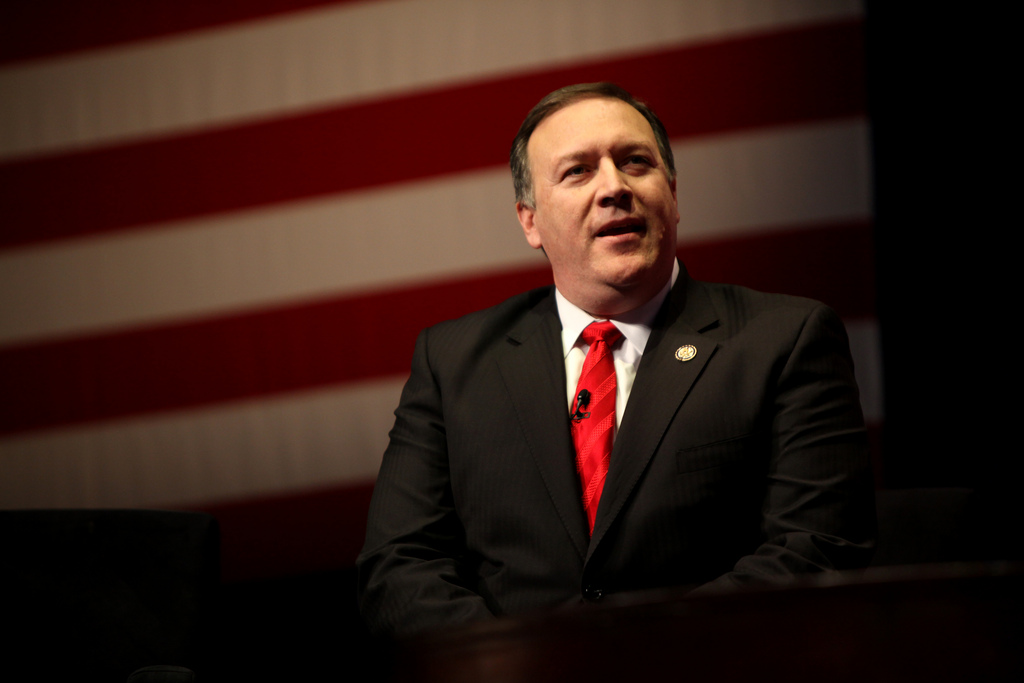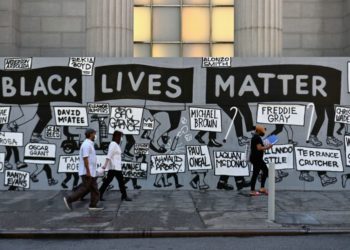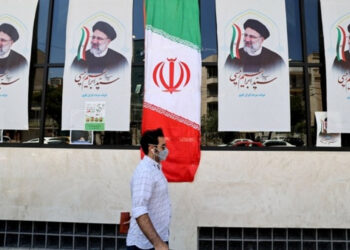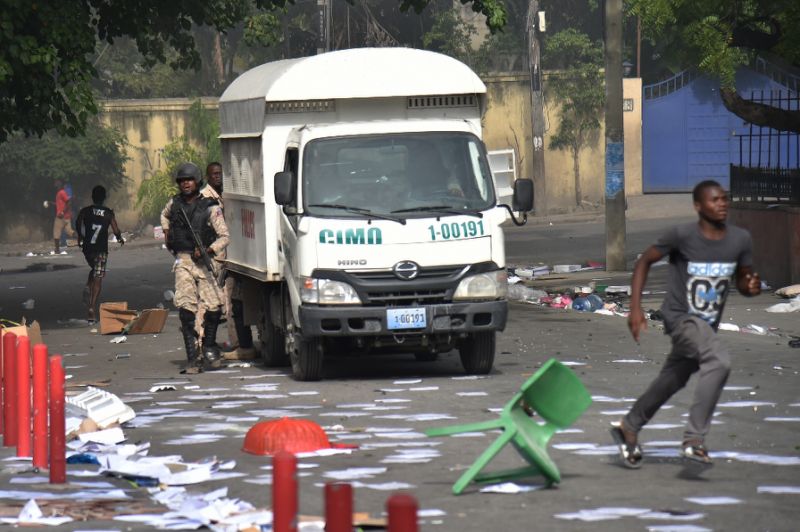U.S. Secretary of State Mike Pompeo urged European powers to get behind American measures to cut Iran off from world energy markets Thursday, during talks in Brussels.
While debate at the nearby NATO summit was marked by President Donald J. Trump‘s attacks on Germany’s close energy ties with Russia, his top diplomat had another target.
Pompeo peeled off from Trump’s summit entourage and joined U.S. Energy Secretary Rick Perry and E.U. foreign policy chief Federica Mogherini at the E.U.-U.S. energy council.
Pompeo made no statement going into the talks, but his Twitter account showed what was on his mind.
“Iran continues to send weapons across the Middle East, in blatant violation of U.N. Security Council resolutions,” he wrote. “Iran’s regime wants to start trouble wherever it can. It’s our responsibility to stop it.”
Together with our allies #UK, #France, #Germany, #SaudiArabia, #Jordan, today we reaffirmed our support for the Syrian political process and our goals of removing Iran’s influence, defeating #ISIS, deterring chemical weapons use. pic.twitter.com/XXurIn0k3r
— Secretary Pompeo (@SecPompeo) July 12, 2018
Then, just before the talks started, he added: “We ask our allies and partners to join our economic pressure campaign against Iran’s regime.
“We must cut off all funding the regime uses to fund terrorism and proxy wars,” he warned.
“There’s no telling when Iran may try to foment terrorism, violence and instability in one of our countries next.”
Alongside the tweet he posted a map of Europe purporting to show the locations of 11 “terror attacks” U.S. officials believe Iran or its proxy Hezbollah have carried out since 1979.
Washington dismayed Europe in May when Trump pulled out of the 2015 accord under which Iran agreed to controls on its nuclear program in exchange for sanctions relief.
U.S. sanctions have now “snapped back” into place and US officials have begun to hope that the economic pressure is fuelling domestic discontent against the Tehran regime.
European companies are reluctant to resume trade with Iran at the risk of being hit by U.S. secondary sanctions, but the main E.U. capitals want to protect the accord.
They are thus resisting a U.S. threat to impose sanctions on any entity trading in Iranian oil or dealing with the Iranian central bank after a November 4 deadline.






















